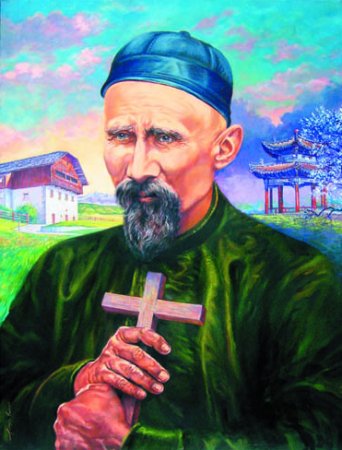Going up the Mountain
I have lived in the Tagaytay for five years, in 2002, 2004-2005, 2007-2008 where I finished my studies in Theology. On weekends, I and the rest of the seminarians leave our seminary and Tagaytay to go the different parishes mostly in Metro Manila where we are assigned. On our way, we usually encounter the heavy volume of cars and the heavy traffic going up to Tagaytay even on early morning. These only show that many people are coming to Tagaytay. What is true of Tagaytay is also true of Bagio. Initially, many of us would think that people go to these mountain destinations to rest, relax and recreate. But lately, during the two Saturdays and Sundays I was in Tagaytay I discovered another reason why people go to these mountain destinations particularly in Tagaytay. I found out that in the Pinks Sisters, in their monastery people come to visit the place and join the Sisters in Prayer. As early as Saturday morning until Sunday evening the Pinks Sisters’ Monastery are filled with pilgrims silently moving in and out of the Chapel. This is the very reason why Last year the Pinks Sisters have to double the size of their parking space by cementing an adjacent empty lot. Thus, in the Pink Sisters in Tagaytay there are just so many people coming to pray and spend time with God.
In our Gospel today, which is the account of Transfiguration in Mark tells us about Jesus being transfigured before the sight of Peter and the two other disciples up in the mountains. Obviously, they were there up in the mountain to pray. The Bible oftentimes, associate mountains with events of theophanies, as in the revelation to Moses and Elijah. In Mark as well as in Luke and Matthew, a mountain is a place of prayer. What i see here is a close connection between prayer and the experience of God's glory, as if saying that in prayer one experiences God. And this is inded the very reason why many people go to the mountain, to Tagaytay to pray and experience God.
"Prayer," says an anonymous quote, "is a passport to heaven, our communication to God." The quote underlines and recognizes the exclusive right of access if not at least the means of access of prayer to God. In fact, in prayer, we commune with God, or put simply, we are with God.
I believe, Transfiguration, that moment of experience of God, continuous to happen and be experienced by many individuals and communities in their moments of prayer. It is in this regard that we speak of religious experience.
I believe, Transfiguration, that moment of experience of God, continuous to happen and be experienced by many individuals and communities in their moments of prayer. It is in this regard that we speak of religious experience.
The challenge for us is to widen the space of prayer to include in its scope our studies, work and our relationships where God is actively involved and waiting to be noticed. Let there be no dichotomy between work and prayer as might be implied and mistakenly construed from the famous Benedictine motto: “ora et labora.” Rather, let our work be done in prayer.
In this way, we become responsive to the Words at Transfiguration: "This is my beloved Son with whom I am well pleased; listen to Him." Indeed, listening--being attentive of God's message is an integral part of prayer. In the words of Blessed Mother Theresa of Calcutta, "God speaks in the silence of the heart. Listening is the beginning of prayer."
May we then experience the Transfiguration of our Lord in our prayers, work, studies, relationships and in the people we meet.





Walang komento:
Mag-post ng isang Komento